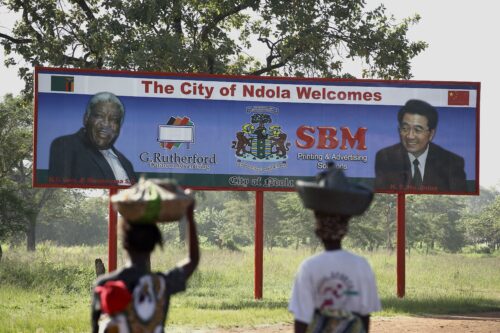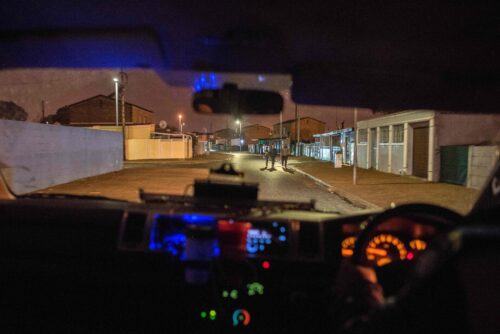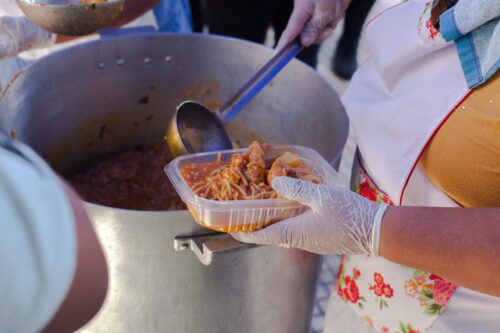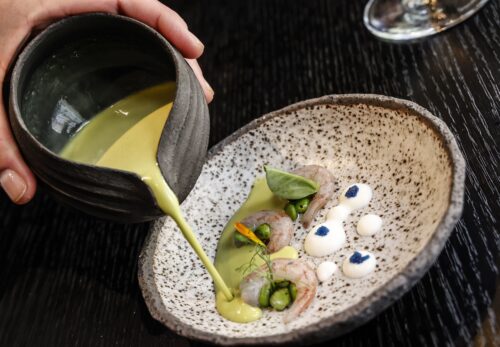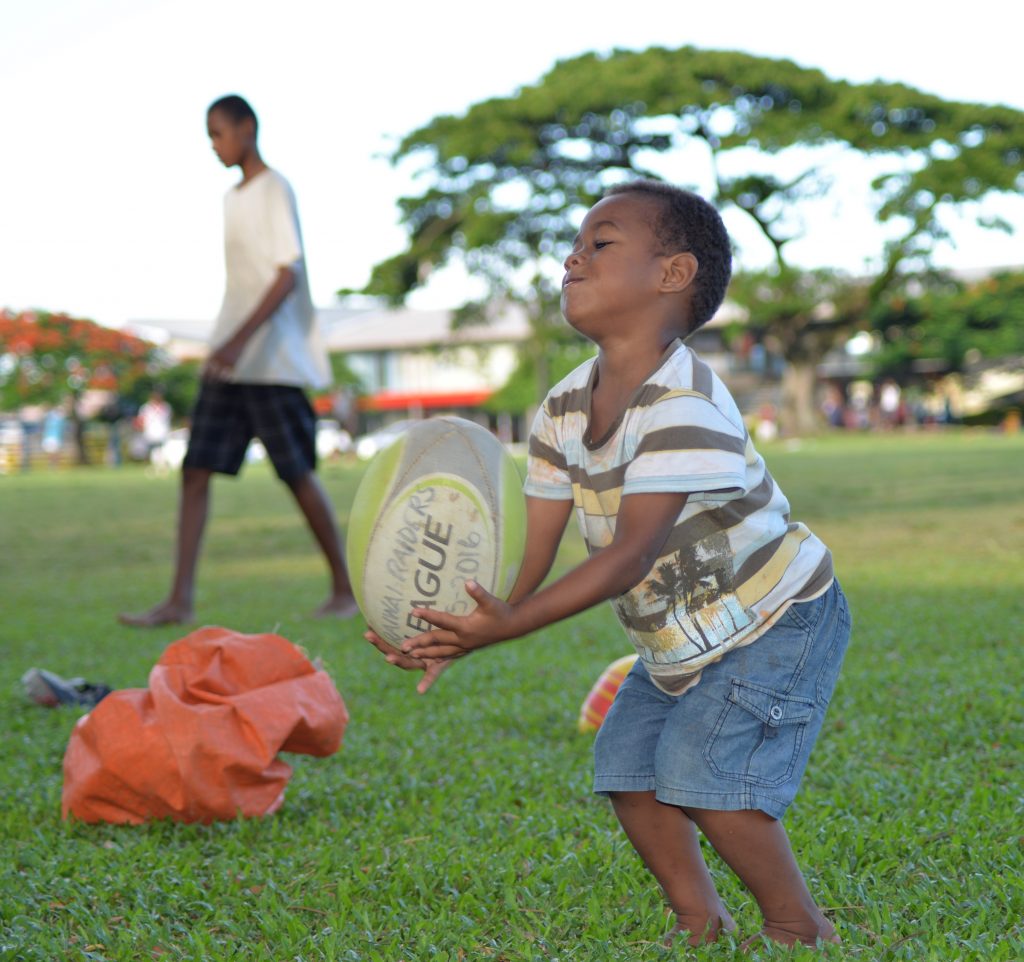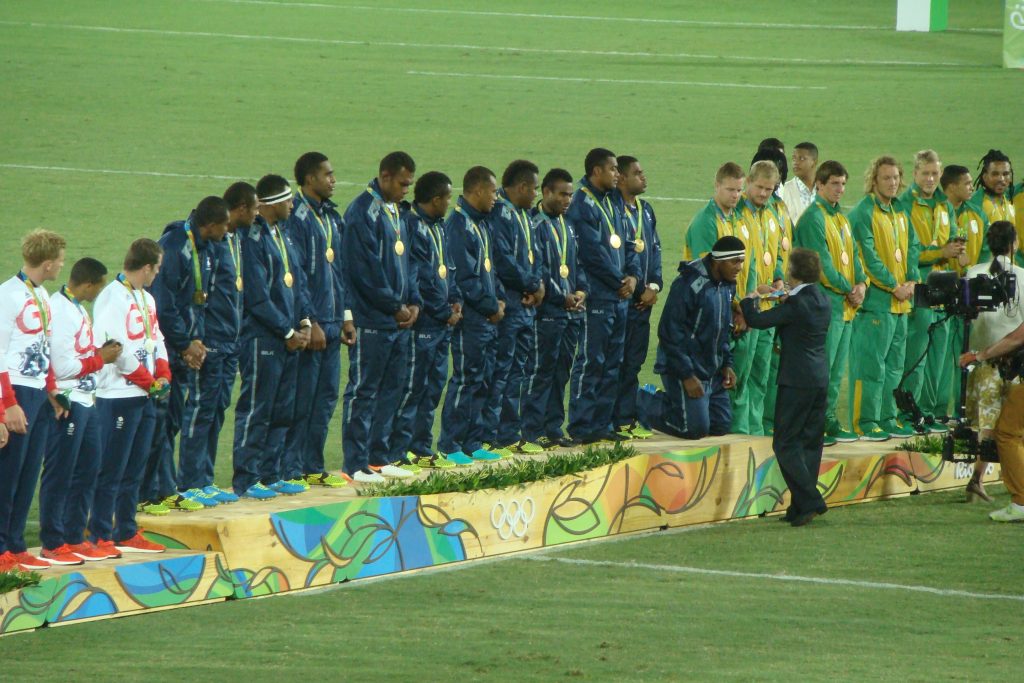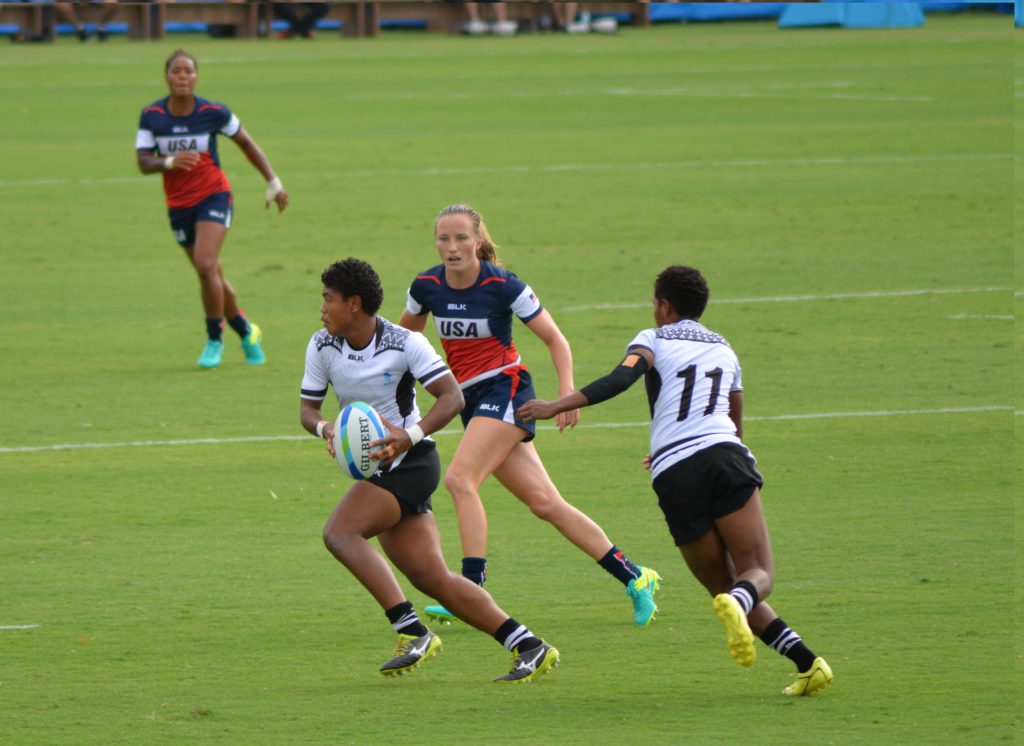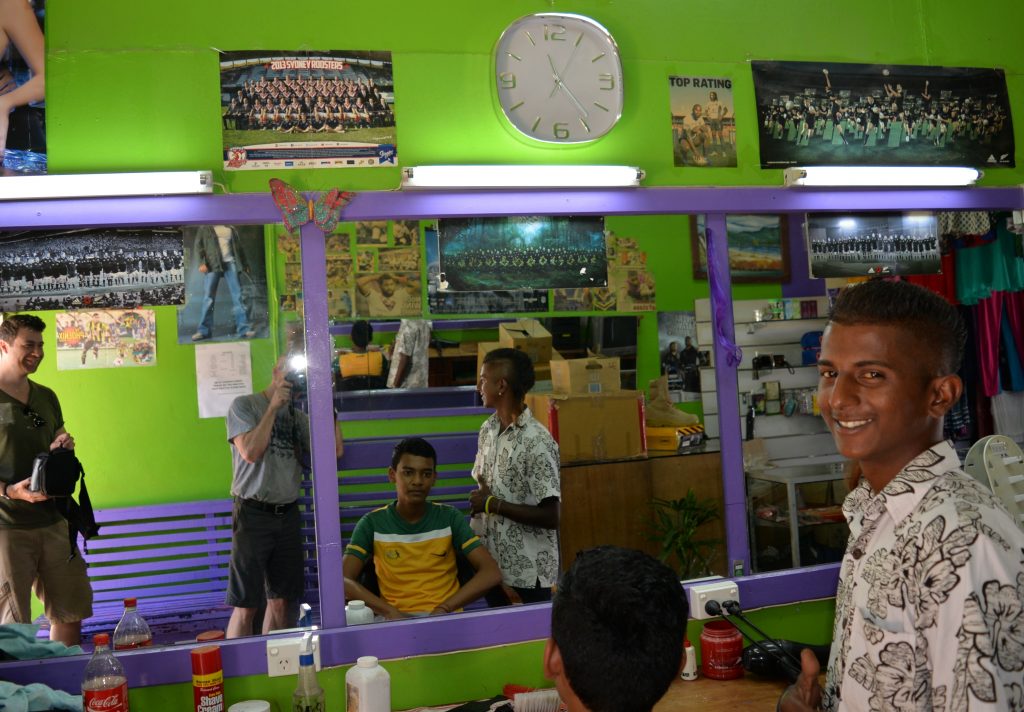The Untold Story Behind Fiji’s Astonishing Gold Medal
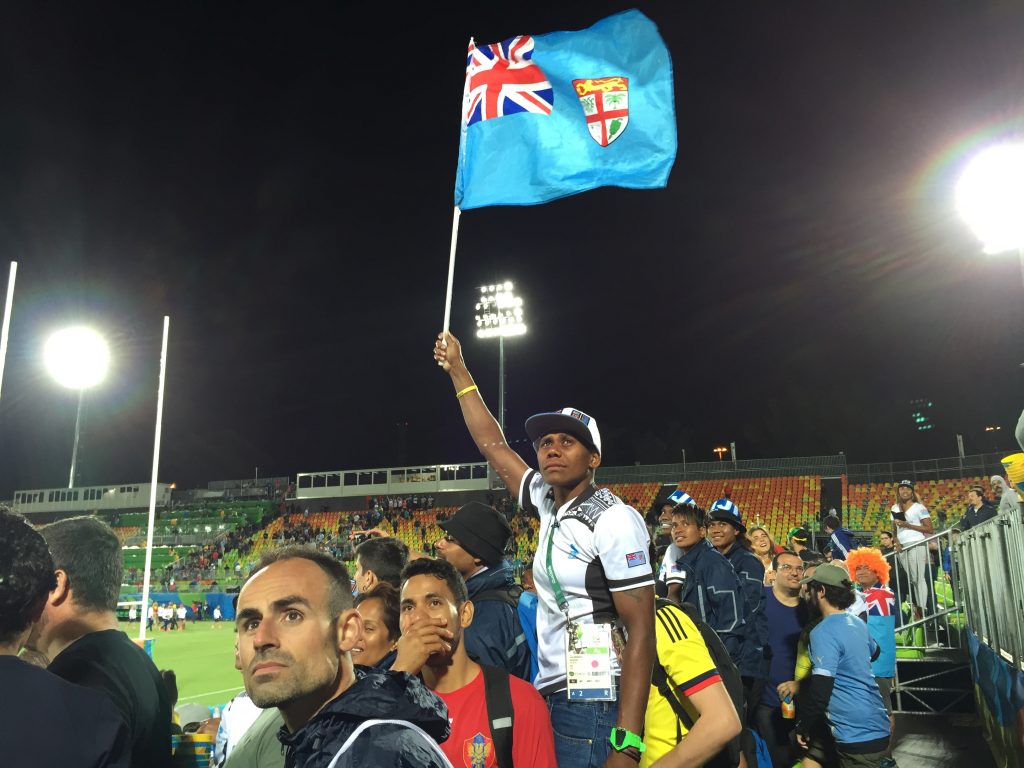
On the evening of August 11, Fiji won its first-ever Olympic medal: a gold medal in men’s rugby sevens.
Rugby is the national sport in Fiji, an island nation of close to 900,000 inhabitants in the Southwest Pacific. Virtually everyone is a fan. The country specifically excels in rugby sevens, a version of the game played by seven participants per side in a blisteringly fast 14 minutes.
The country has been united by the team’s astonishing victory in Rio: The rugby sevens team members, already adulated in Fiji, will return home as heroes, and the government has declared a national holiday on August 22 in their honor.
But there is a divisive backdrop to this story. The sport highlights dramatic differences in the treatment and perception of women and men in Fiji as well that of Indigenous Fijians and citizens who are descendants of Indian immigrants. Since 1980, Niko Besnier (one of the co-authors of this piece) has spent considerable time in Fiji conducting anthropological fieldwork; what has become clear to him is that although the nation is defined by rugby, the sport is owned by only a part of the country’s population.
Almost all male Indigenous Fijians play rugby from very early childhood. Since the 1990s, many of the most talented have become prized players in rugby teams around the world; the money they send home from their sometimes lucrative, if short-lived, contracts has a significant impact on the economy of a country with limited resources. The game has such a prominent role that Indigenous Fijians, almost all of whom are devout Christians, often joke that the only sport played in heaven is rugby.
When rugby was added to the list of Olympic sports for the Rio Games, it suddenly gave Fiji a visibility it never had before: Only two athletes from Fiji had previously met the qualifying standards for an Olympic sport since the country began participating in the games in 1956.
The men’s rugby final pitted Fiji against Great Britain, the country’s former colonial master, from whom it gained independence in 1970. The atmosphere in the stadium was electric. Many in the audience were rooting for the Fijian team, including some Irish and Argentinian fans who were cheering against Britain, reflecting long-standing historical tensions between their home countries and Britain.
The crowd was festive and lighthearted, and the beer was flowing freely. The excited and close-knit Fijian group Besnier was with included fans who were wearing blue wigs as well as a few men dressed in full drag.
Like all rugby sevens matches, the game was fast, dynamic, and unpredictable. The match showcased Fijian rugby at its very best: Its seven players moved in perfect coordination, and the ball seemed to float as it was passed from player to player. The final score was 43 to 7.
At the medal ceremony, team members followed the traditional Fijian approach to interacting with a high-ranking person. Each player knelt in front of International Olympic Committee member Princess Anne as she awarded him a gold medal—after which he clapped three times using the hollowed palms of his hands, a gesture called cobo. The players’ display of respect seemed to warm viewers’ hearts, and media coverage of the game and its award ceremony quickly went viral.
Among the fans in the stands were members of the other Olympic contenders from Fiji: the women’s team, known as the Fijiana. They had played three days before with disappointing results, ending in eighth place out of 11 teams despite a recent history of winning major international tournaments in Asia and the Pacific.
In contrast to their male compatriots, Fijian women who play rugby receive little support in their home country. Many people in Fiji look askance at these convention-breaking women, finding them lacking in the type of demure and self-effacing femininity expected of young women. Rugby-playing women are viewed as “tomboys”—women who act too masculine by being independent, aggressive, and loud. They are often assumed to be sexually attracted to other women.
Fiji-based sociologist Yoko Kanemasu, who has followed women’s rugby in Fiji for many years, has witnessed games where spectators applauded visiting teams from Australia and New Zealand only to boo, laugh, and call out insults when their own team walked onto the field. Some female players have been beaten up by their fathers or thrown out of their homes by their families—a terrible thing to happen to anyone but a particularly awful fate in a society where family relations are so important. Some of these women have taken up residence in squatter settlements, where they lead a precarious existence but are bonded together by a shared focus that gives them joy and boosts their self-esteem: rugby.
Even the national Fijiana team receives little support. The Fiji Rugby Union treats them as a distant second to the men’s team, and they have few corporate sponsors, in contrast to the men’s team, which is sponsored by many of the country’s major companies. When Besnier visited the women’s team at training last March, 31 miles from the country’s capital of Suva, he found the players were housed in a Christian camp—five people to a room, with basic amenities—while the men’s team stayed at a nearby luxury resort. Prior to the Olympic Games, the union attempted to replace some of the players on the squad with women from netball, who were more “feminine acting,” even though these new players knew little about rugby.
Women aren’t the only ones who are discouraged from participating in the rugby scene.
Rugby audiences around the world respond with wild appreciation to Fijian rugby players’ performances of Indigeneity, such as the respectful cobo at the Olympic medal ceremony and the dramatic cibi (war dance) they often perform before games. What few realize is that these performances only represent part of Fiji’s population.
Fiji is a multicultural society. Indigenous Fijians account for 57 percent of the population; a large proportion of the rest of the population are descendants of immigrants from India who arrived as indentured laborers or free migrants during the late 19th and early 20th centuries, when the islands were a British colony. Interethnic relations in Fiji have been tense in recent history, prompting many Indo-Fijians to emigrate, causing their population to drop to 38 percent.
Indo-Fijians are excluded from rugby in many ways. Very few play it, and Indigenous Fijians explain this by saying that their generally slighter physique is unsuitable for the roughness of the sport. When Indo-Fijian young men try to play rugby, they are often jeered at. Their own families discourage them from playing, saying that it will expose them to physical harm at the hands of the much larger and rougher Indigenous Fijians, who might take pleasure in intimidating the Indo-Fijians (whose dominance in the business sector many Indigenous Fijians resent).
Everyone in Fiji—women and men, Indigenous Fijians and Indo-Fijians—is brought together by a passion for rugby. But some are relegated to being spectators. Women are largely expected to support their rugby-playing male relatives by cooking meals for teams and washing their muddy clothes after games. Indo-Fijians are typically enthusiastic supporters of the sport, but then again not being so would risk endangering the perception of their allegiance to the country and its political majority.
The men’s Olympic win should be rightly celebrated; they have scored an amazing victory for the sport and for a small country like Fiji. But, as is true of many highly publicized sporting events, behind it lies a complex reality that most of the world’s fans remain oblivious to.
Niko Besnier’s research for this article was funded by the European Research Council. Susan Brownell’s research was funded by the College of Arts & Sciences and the Office of International Studies and Programs at the University of Missouri, St. Louis.
